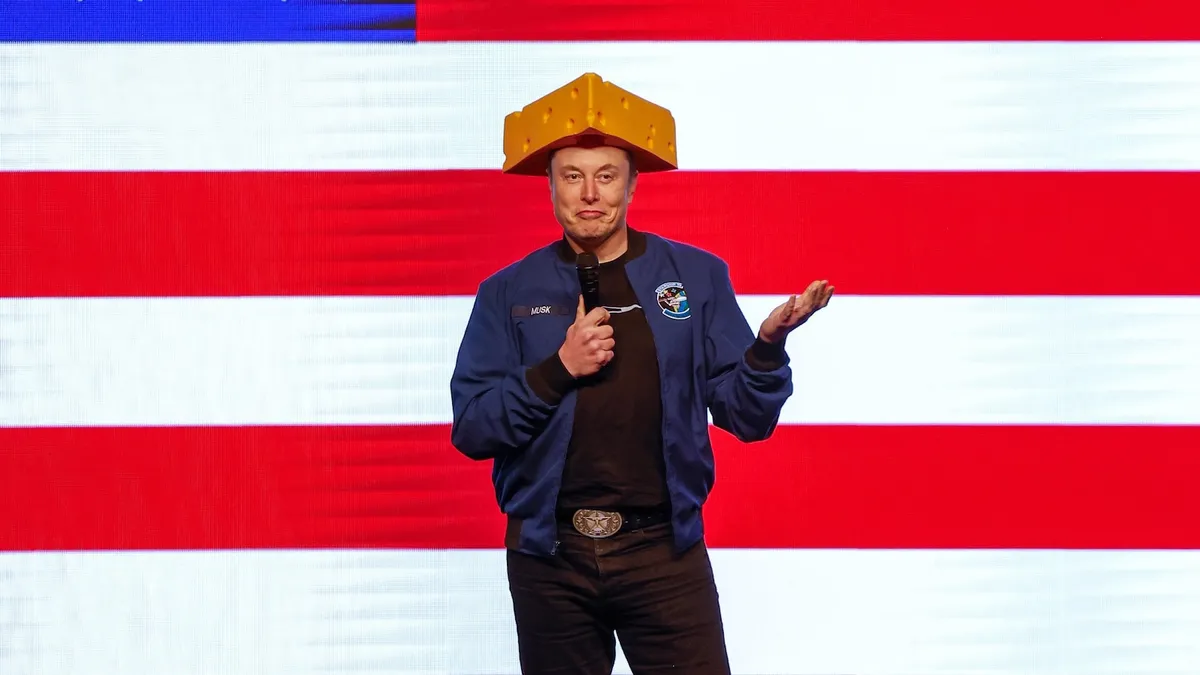
On Tuesday, Judge Susan Crawford secured a crucial victory that preserved the slender liberal majority on the Wisconsin Supreme Court by defeating conservative candidate Brad Schimel. However, a significant loser in this election was billionaire Elon Musk, who funneled over $21 million into a race that is typically low-profile. Musk's involvement included paying three individual voters $1 million each to encourage participation in this pivotal battleground state election, marking a striking moment in the intersection of wealth and politics.
This election was a litmus test for Musk's political influence, particularly given his increasing prominence during Donald Trump's presidency. Crawford and her Democratic supporters highlighted Musk's financial contributions as an attempt to "buy" the election, which resulted in the most expensive judicial race in U.S. history. In her victory speech, Crawford asserted, “Today Wisconsinites fended off an unprecedented attack on our democracy, our fair elections, and our Supreme Court. And Wisconsin stood up and said loudly that justice does not have a price; our courts are not for sale.”
The race quickly evolved into a proxy battle reflecting broader national political issues, especially with Trump's endorsement of Schimel. The Wisconsin Supreme Court has the power to influence critical issues such as voting rights and redistricting, making it a focal point ahead of the upcoming midterm elections and the 2028 presidential contest. Musk himself remarked on social media, “A seemingly small election could determine the fate of Western civilization,” underscoring the stakes involved.
Notably, the America PAC, a super PAC backed by Musk, invested at least $6 million in door-to-door canvassing efforts across Wisconsin. This strategy mirrored their actions in other competitive states where Trump had previously found success. Despite Musk's substantial financial investment, Schimel was trailing by four percentage points by late Tuesday night, indicating a significant shift in voter sentiment against his campaign.
Musk's attempts to sway the election were met with skepticism by many voters. Kenneth Gifford, a 22-year-old college student from Milwaukee, expressed concern over Musk's influence, stating, “There’s an insane situation going on with the Trump administration, and it feels like Elon Musk is trying to buy votes. I want an actual, respectable democracy.” Meanwhile, voters like Jim Seeger, a 68-year-old retiree, lamented the overwhelming financial aspect of the race, stating, “I think it’s a shame that we have to spend this much money, especially on a judicial race.”
In a related legal move, Wisconsin's Democratic Attorney General, Josh Kaul, sought to prohibit Musk from making payments to voters who signed a petition against "activist judges." However, the state Supreme Court ultimately declined to rule on this matter due to technicalities. Musk's entry into this contentious race came shortly after Trump's inauguration, reflecting a growing trend of wealthy individuals attempting to exert influence over local elections.
Musk's approach in this election mirrored tactics he employed during the previous presidential race, where he spent over $200 million to support Trump across swing states, including Wisconsin. His organization incentivized participation by offering payments to individuals who engaged in voter outreach, resulting in a campaign that was as much about financial power as it was about policy.
As the dust settles from this contentious election, it is clear that the implications of Musk's involvement will resonate beyond Wisconsin. Democratic Party Chair Ben Wikler remarked, “People do not want to see Elon Musk buying election after election after election. If it works here, he’s going to do it all over the country.” This election serves as a crucial reminder of the ongoing battle over the integrity of democracy and the role of money in politics.